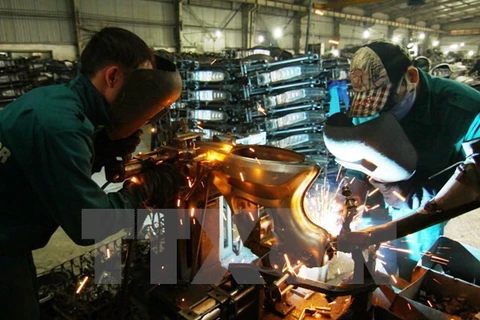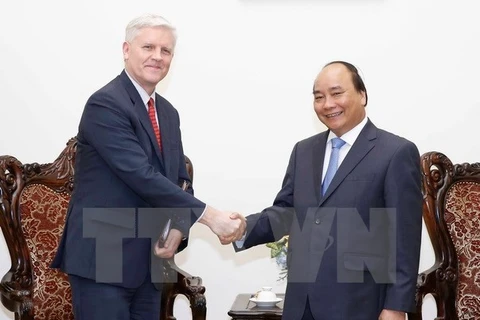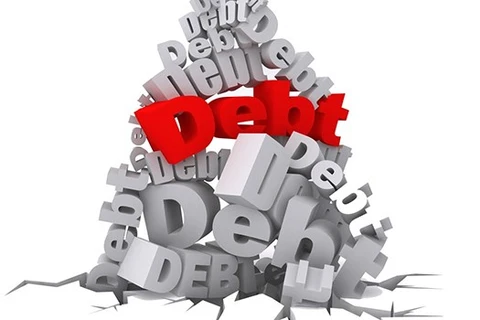Hanoi (VNA) – The socio-economic situation in the first six months of 2016 reaped positive outcomes with the macro-economy being stable, Prime Minister Nguyen Xuan Phuc reported at the first session of the 14th National Assembly in Hanoi on July 29.
He cited that the consumer price index (CPI) expanded by 2.35 percent year-on-year, while credit growth stood at 8.16 percent. The exchange rate and foreign exchange market were stabilised with the foreign currency reserves reaching a record high.
The country registered a trade surplus of 1.54 billion USD. The State budget collection increased by 6.1 percent, while the total social investment capital rose by 11.7 percent. The registered foreign direct investment (FDI) capital reached 11.3 billion USD and the FDI disbursement increased by 15.1 percent.
New official development assistance (ODA) capital recorded an annual growth of 61 percent whilst the gross domestic product (GDP) expanded by 5.52 percent.
The processing and manufacturing industry posted a year-on-year rise of 10.1 percent. The total retail sales of goods and services rose by 9.5 percent. International tourist arrivals increased by 21.3 percent.
More 439 communes and eight districts became modern rural areas, increasing the number of recognised ones to 1,965. As many as 762,000 people were employed. The number of health insurance buyers increased by 78.6 percent.
The Prime Minister, however, pinpointed difficulties and challenges facing the country, particularly high public debt as it made up 62.2 percent of GDP at the end of 2015. The Government’s debt reached 50.3 percent of GDP, surpassing the allowed 50 percent threshold. The foreign debt was equal to 43.1 percent of GDP.
The debt payment in 2011-2015 was 1.86 times against 2006-2010. This pressure will continue in 2016-2018 as the economic growth was slowed down, lower than that of the same period in 2015 (5.52 percent compared to 6.32 percent), he explained.
For the first time, the agricultural sector recorded a negative growth of 0.18 percent, he noted.
Prime Minister Nguyen Xuan Phuc proposed key solutions to spurring socio-economic development in the coming time, referring to embarking on the macro-economy stability as a foundation for sustainable growth; developing strategic fields in combination with economic restructuring; removing barriers for businesses to develop and promoting start-up spirit and innovation.
He suggested improving local living standards; coping with climate change and natural disasters, protecting the environment, and enhancing management of natural resources; as well as safeguarding national independence and sovereignty, ensuring social-political order and security; improving external affairs work and promoting international integration; and speeding up communication information to create high consensus in society.
In examining the report, the National Assembly Committee on Economic Affairs updated new developments, difficulties, and challenges in the first six months of this year, pointing to Britain’s exit from the European Union (EU), which will affect each nation and global economy. The signing of the free trade agreement between Vietnam and the EU could take longer due to changes of some terms in the document.
The serious marine environmental pollution in the central coastal provinces along with the abnormal weather patterns, especially drought in the Central Highlands and south-central regions and saltwater intrusion in the Mekong Delta negatively affected local production and daily activities.
In addition to proactively implementing the NA’s Resolution on socio-economic development plan in 2016-2020, the committee suggested strongly reforming the business and investment climate, reinforcing inspections of the quality, cohesion, and compatibility of laws, ordinances and guiding documents, speeding up the disbursement of capital for infrastructure projects, and adopting long-term measures to mitigate natural disasters’ impacts.-VNA

























